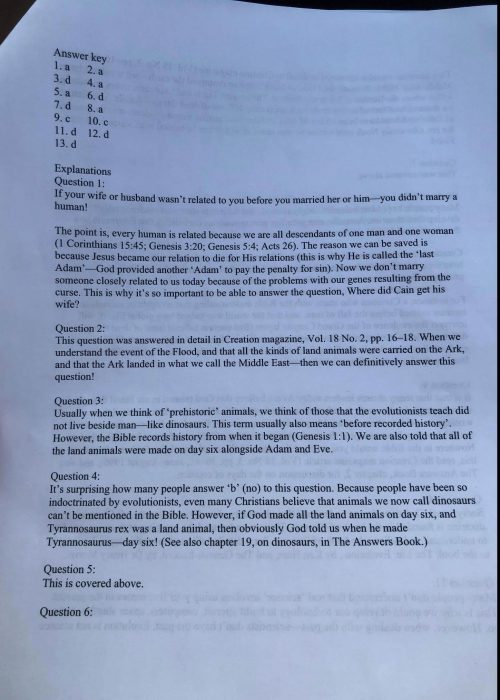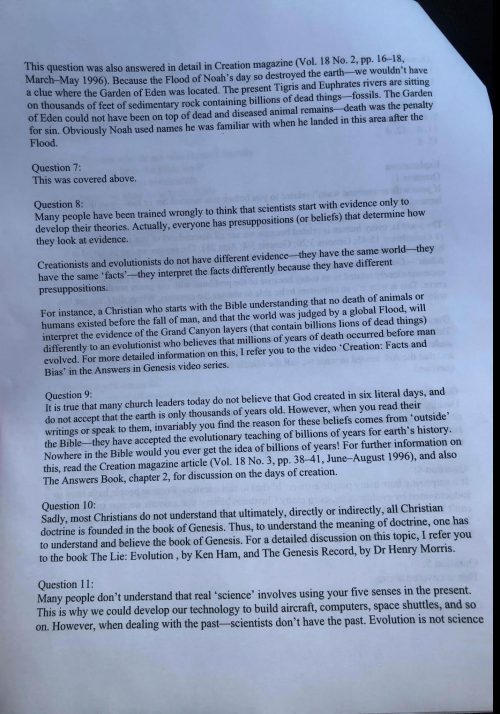This weekend, I’ve been working on an exam for my introductory biology class. We’ve been covering basic principles of evolution so far this term, discussing multiple lines of evidence and examples. Then, what appears over the transom but an exam from a Kentucky middle school covering exactly the same material! What luck! This will make exam prep even easier, and it even includes the answer key!
Only problem is that the entire exam is total bullshit. Darn. I guess I’ll have to go back to composing my own.
Although, an exam consisting of the question, “What is wrong with each of these 13 creationist claims?” might be sort of useful. Except that I’d rather my students learn the real science.










